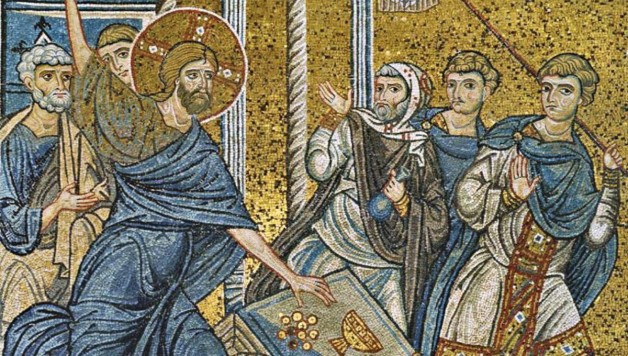According to a report this past May, nearly sixty percent of practicing Catholics in the Camden diocese of southern New Jersey believe that Jesus sinned. To be frank, this is astounding. Somehow, people have come to the conclusion that Jesus, who is both fully God and fully man, sinned. Perhaps this idea comes from the Letter to the Hebrews:
Therefore he had to be made like his brethren in every respect, so that he might become a merciful and faithful high priest in the service of God, to make expiation for the sins of the people. (Heb 2:17)
If Jesus is like us in all things, then (so the reasoning goes) Jesus, too, must have sinned. This fits the common phrase: to err is human.
Yet, the Letter to the Hebrews continues, “For we have not a high priest who is unable to sympathize with our weaknesses, but one who in every respect has been tempted as we are, yet without sin” (4:15). The Council of Chalcedon specifically states that He was “like us in all things but sin.”
Just because someone is human doesn’t necessarily mean that he or she will sin. The saints in heaven don’t sin, and if these human beings, dwelling in the light of glory, remain sinless, how much more should we say the same of God incarnate, the very source of that glory? Moreover, our Lord came to save us from our sins. How could He have done this if He himself were a sinner?
Again, did Jesus sin when He overturned the tables of the moneychangers (Jn 2:13–22)? No. Anger isn’t necessarily sinful. According to John’s Gospel, the disciples understood this as an act of righteous zeal: Jesus was correcting the erroneous and impious practices occurring at the Temple (Jn 2:17).
Or perhaps He sinned when He used harsh language toward the Pharisees (Mt 23:1–36). Here again, correcting errors and preventing scandal doesn’t make someone sinful. Jesus used strong words in order to help the crowd and His disciples see the dangers of the errors of the scribes and Pharisees. Through their misguided practices and faulty teaching, they were leading people astray and keeping them out of heaven (Mt 21:13). Yet Jesus came so that men could have eternal life.
There are some passages in the Scriptures that challenge our conventional notions of holiness. It’s these types of passages that invite us to go deeper. They invite us to grapple with the divine way of thinking, which at first may not appear to make sense. In these instances, the Lord offers us a chance to wrestle with the truth of who He is and what His earthly life was like. And so the question comes before us: are we willing to trust Him—our brother and our Lord, true man and true God?
✠
Image: Christ Drives the Moneychangers from the Temple, Detail from a twelfth-century mosaic, Basilica di Santa Maria Nuova, Monreale, Sicily







